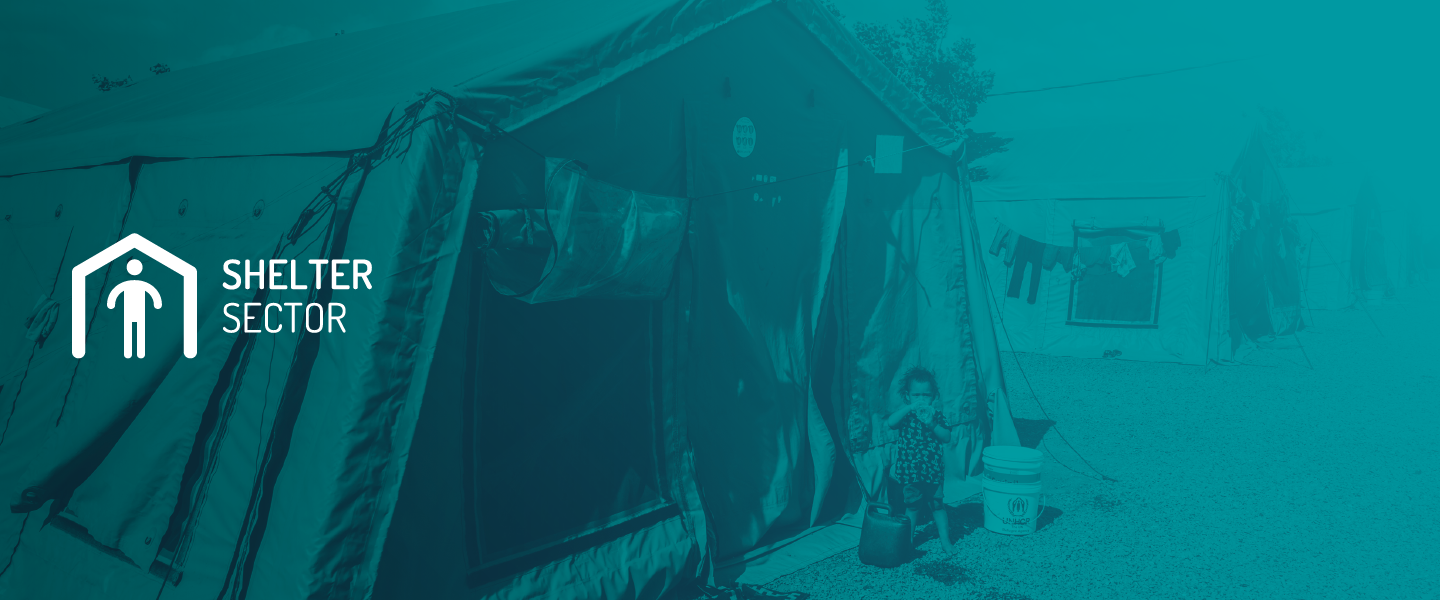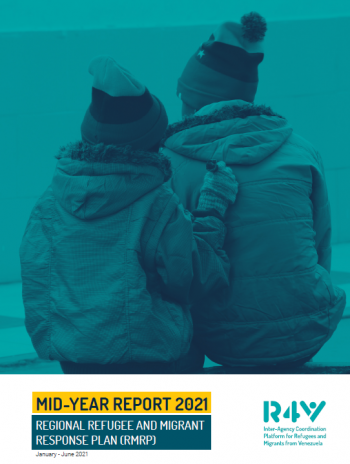Key Figures
What is the Shelter Sector?
Voices of refugees and migrants from Venezuela
The Shelter Sector's response
The Shelter Sector's response for refugees and migrants from Venezuela in host countries
Access to Adequate Housing
Access to Adequate Housing for Refugees and Migrants from Venezuela
Priority Needs
Access to shelter for refugees and migrants from Venezuela has become more critical since the onset of the COVID-19 pandemic. Needs assessments conducted in Colombia and Ecuador identified shelter as the second greatest need of refugees and migrants from Venezuela. Movement restrictions implemented by host countries have had a strong impact on income generation capacities, leading many to lose their livelihoods and unable to pay their rent. Rates of eviction of refugees and migrants have also spiked, implying several protection risks (violence, GBV, exploitation and abuse by landlords, children dropping out of school, homelessness, among others) in particular for women.
Response Strategy
The Shelter Sector response will focus on providing access to temporary and longer-term adequate shelter and settlement infrastructure solutions for refugees and migrants from Venezuela, in compliance with agreed minimum standards and IPC measures. This will be done by prioritizing the most vulnerable groups and will focus on border areas and urban centers where refugees and migrants intend to settle.
Response priorities
The Shelter Sector will focus on the following interconnected priorities:
1. Prioritizing reinforcement of temporary collective shelter solutions through infrastructure improvements and provision of tools and materials. Sector coordination mechanisms will be strengthened, and capacity-building activities will be carried out to provide tools to and strengthen coordination for collective shelter managers.
2. Providing individual shelter solutions for refugees and migrants from Venezuela with the intention to stay in their host countries. The primary activity will focus on rental assistance.
3. Supporting area-based approaches and facilitating collaboration between host communities, refugees and migrants and public institutions for joint planning and construction of infrastructure. Essential household items and shelter kits will be distributed to refugees and migrants in-destination and in-transit.
Integrated response approaches
The Sector response and related procedures will be harmonized to support a complementary multi-sectoral approach. Protection will be mainstreamed to contribute to the mitigation of protection risks, including evictions and GBV. The Shelter Sector will continue to work alongside the WASH, Health and Food Security sectors to ensure access to services and assistance through shelter and settlement solutions, including actions to mitigate the spread of COVID-19. In addition, the link with the Support Spaces Working Group will be strengthened to provide timely information regarding adequate shelter solutions available across the region. It will collaborate closely with the Integration Sector to encourage the transition from emergency assistance towards durable solutions. The Shelter Sector response will strengthen the collaboration with the regional Cash Working Group, prioritizing the CVA modality for rent, temporary accommodation in hotels, and essential household items.
HIGHLIGHTS
R4V Interagency Coordination Platform: Collective Shelter Management Toolkit
21 Jul 2021Toolkit and manual on collective shelter management, includes SOPs and guidance on all phases of management (opening, day-to-day, closure and durable…
Read documentCalendar
| Sun | Mon | Tue | Wed | Thu | Fri | Sat |
|---|---|---|---|---|---|---|
|
31
|
1
|
2
|
3
|
4
|
5
|
6
|
|
|
|
|
|
|
|
|
|
7
|
8
|
9
|
10
|
11
|
12
|
13
|
|
|
|
|
|
|
|
|
|
14
|
15
|
16
|
17
|
18
|
19
|
20
|
|
|
|
|
|
|
|
|
|
21
|
22
|
23
|
24
|
25
|
26
|
27
|
|
|
|
|
|
|
|
|
|
28
|
29
|
30
|
1
|
2
|
3
|
4
|
|
|
|
|
|
|
|
|
Sector Contacts
Rafael Mattar Neri
UNHCR
Javier Parra
NRC
Marta Leboreiro
IOM


